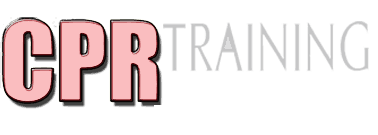Caffeine overdose occurs when an individual takes in more than the recommended amount of caffeine, which is estimated at typically 200 to 300 mg per day.
Caffeine overdose occurs when an individual takes in more than the recommended amount of caffeine. In a day, the normal or recommended amount of caffeine is estimated at typically 200 to 300 mg. However, this value can vary from person to person, depending on the age, weight and overall health of an individual.

Caffeine is a substance that naturally exists in plants but can also be synthetically manufactured. It is also commonly used as an additive in food products and found in many beverages as well. Many all-nighters consist of ingesting caffeine to stay awake and alert, and this is not without reasons. Caffeine serves as a stimulant to the central nervous system. Moreover, it is a known diuretic.
Amount of Caffeine in a serving size:
Caffeine is normally associated with coffees, teas and colas. The following are the common sources and typical amounts of caffeine in a particular serving size:
| Item | Serving Size | Caffeine (mg) |
| Coffee | 8 oz. | 133 |
| Black Tea | 8 oz. | 53 |
| Cola | 12 oz. | 35 |
| Red Bull | 8.3 oz. | 80 |
| Chocolate Bar (Dark) | 1.45 oz. | 33 |
| NoDoz Caffeine Tablets | 1 tablet | 200 |
| Extra Strength Excedrin | 1 tablet | 65 |
Causes of Caffeine Overdose
Although caffeine overdose may be done deliberately, it is usually accidental. Some of the possible causes of caffeine overdose include:
- Drinking too much caffeinated drinks unaware that it is already overdose
- Unaware of presence of caffeine
- Sensitivity to caffeine
Signs and Symptoms of Caffeine Overdose
Most signs and symptoms of caffeine overdose show until caffeine is excreted out of the body. Some of the common signs and symptoms of caffeine overdose include:
- In adults:
- Change in alertness
- Confusion
- Hallucinations
- Irregular heartbeat
- Heart palpitations
- Twitching of muscles
- Dizziness
- Breathing problems
- Trouble sleeping
- Increased thirst
- Increased urination
- Fever
- Vomiting
- Diarrhoea
- Convulsion
- In infants:
- Tense muscles, then very relax
- Nausea and vomiting
- Tremors
- Shock
- Quick heartbeat
- Quick, deep breaths
First Aid Management for Caffeine Overdose
Treatment for drug overdose will consist of removing the remaining caffeine in the body whilst managing the symptoms. Some first aid trips recommended in cases of caffeine overdose include:
- Immediately call for emergency medical service if the individual has collapsed or stopped breathing.
- Initiate CPR if the individual has weak breathing or is not breathing at all.
- If no symptoms are present, call Poison Control immediately and they will advice on how to continue.
- Do not force the individual to vomit at all times, nor should food or beverages be given.
Disclaimer: This article does not provide medical advice and should not be substituted for formal training. The information given should not be used for self-diagnosis. Seek medical attention when necessary. It is important to recognise medical emergencies at all times to avoid complications from developing. To learn more about to how to properly manage caffeine overdose, sign up for first aid and CPR training with St Mark James.
Online Sources:
http://www.nlm.nih.gov/medlineplus/ency/article/002579.htm
http://www.healthline.com/health/caffeine-overdose?toptoctest=expand
